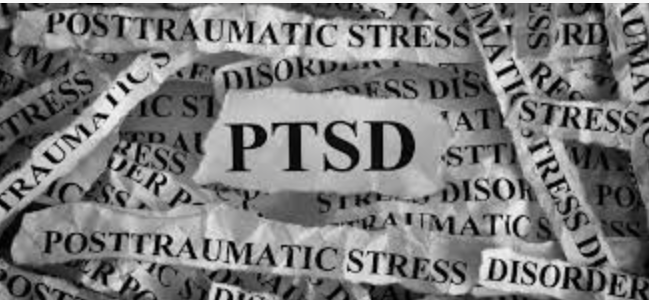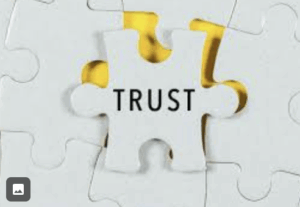Post-Traumatic Stress Disorder (PTSD) is a mental health condition that can develop after experiencing or witnessing a traumatic event. Whether the trauma is related to combat, an accident, abuse, or a natural disaster, the effects of PTSD can be profound and long-lasting. Fortunately, therapy offers a path to healing and recovery for those affected by PTSD. In this blog post, we’ll explore what PTSD is, its symptoms, and how therapy can play a crucial role in helping individuals manage and overcome this challenging condition.
What is PTSD?
PTSD is a psychological disorder that can occur in people who have experienced or witnessed a traumatic event. It’s natural to feel afraid, anxious, or shocked after such experiences, but for most people, these feelings gradually fade over time. However, for individuals with PTSD, the symptoms persist and can become overwhelming, interfering with daily life.
PTSD can develop immediately after the trauma or take weeks, months, or even years to manifest. The condition can affect anyone, regardless of age, gender, or background, and is characterized by four main types of symptoms:
1. Intrusive Thoughts
People with PTSD often experience intrusive thoughts or memories of the traumatic event. These can include flashbacks, where the individual feels as if they are reliving the trauma, and nightmares that disrupt sleep. Intrusive thoughts can be triggered by reminders of the event, but they can also occur unexpectedly.
2. Avoidance Behaviors
Avoidance is a common symptom of PTSD, where individuals go out of their way to avoid places, people, or activities that remind them of the traumatic event. They might also avoid talking or thinking about the trauma, which can lead to emotional numbness and a sense of detachment from others.
3. Negative Changes in Thinking and Mood
PTSD can cause negative thoughts and feelings about oneself or the world. Individuals might feel hopeless, have difficulty experiencing positive emotions, or feel detached from loved ones. Guilt, shame, and self-blame are also common, particularly if the person believes they could have done something to prevent the trauma.
4. Hyperarousal and Reactivity
Hyperarousal refers to the state of being constantly on edge or hypervigilant. People with PTSD may be easily startled, have difficulty concentrating, or struggle with irritability and anger. They might also engage in reckless or self-destructive behavior as a way to cope with their heightened stress levels.
The Role of Therapy in Treating PTSD
Therapy is a critical component of treatment for PTSD and can be highly effective in helping individuals manage and reduce their symptoms. There are several therapeutic approaches that have been proven to be particularly beneficial for PTSD:
1. Cognitive Behavioral Therapy (CBT)
Cognitive Behavioral Therapy (CBT) is one of the most widely used and effective treatments for PTSD. CBT focuses on identifying and challenging the negative thought patterns and beliefs that contribute to distress. In the context of PTSD, CBT helps individuals process their trauma, reframe negative thoughts, and develop healthier coping mechanisms.
- Cognitive Processing Therapy (CPT): A specific type of CBT, CPT is designed to help individuals re-evaluate and modify the beliefs and thoughts related to their trauma. The goal is to reduce feelings of guilt, shame, and self-blame by challenging distorted thinking patterns.
- Prolonged Exposure Therapy (PE): Another form of CBT, Prolonged Exposure Therapy involves gradually confronting the memories, feelings, and situations associated with the trauma. Through repeated exposure, individuals can desensitize themselves to these triggers and reduce their emotional response.
2. Eye Movement Desensitization and Reprocessing (EMDR)
EMDR is a specialized therapy that has been shown to be effective for PTSD. It involves using bilateral stimulation, such as eye movements, taps, or sounds, while the individual recalls traumatic memories. The process helps to reprocess the trauma in a way that reduces its emotional impact. EMDR is believed to help the brain process traumatic memories more effectively, allowing individuals to integrate these memories without the intense emotional distress.
3. Trauma-Focused Therapy
Trauma-focused therapy is an umbrella term for therapies that are specifically designed to address the impact of trauma. These therapies often incorporate elements of CBT, EMDR, and other techniques to help individuals process their experiences and develop coping strategies. Trauma-focused therapy is personalized to meet the unique needs of each individual, taking into account the specific nature of their trauma and symptoms.
4. Group Therapy
Group therapy can provide valuable support for individuals with PTSD. In a group setting, people can share their experiences, learn from others, and feel less isolated in their struggles. Group therapy provides a sense of community and connection, which can be especially beneficial for those who feel disconnected from others due to their trauma.
5. Mindfulness and Relaxation Techniques
Mindfulness and relaxation techniques, such as meditation, deep breathing exercises, and progressive muscle relaxation, can complement other therapeutic approaches by helping individuals manage their stress and anxiety. These techniques promote a state of calm and can reduce the hyperarousal symptoms commonly associated with PTSD.
The Benefits of Therapy for PTSD
Therapy offers numerous benefits for individuals dealing with PTSD. Here are some of the key advantages:
Symptom Reduction
The primary goal of therapy is to reduce the severity and frequency of PTSD symptoms. Through therapeutic interventions, individuals can learn to manage intrusive thoughts, reduce avoidance behaviors, and regulate their emotional responses. Over time, therapy can help diminish the hold that trauma has on a person’s life.
Improved Coping Skills
Therapy provides individuals with practical tools and strategies to cope with the challenges of PTSD. These skills can help manage stress, navigate triggers, and improve overall emotional resilience. With effective coping mechanisms in place, individuals can better handle daily life and prevent setbacks.
Enhanced Emotional Well-Being
PTSD often leads to feelings of guilt, shame, and hopelessness. Therapy helps individuals reframe negative thoughts, process their emotions, and build a more positive self-image. By addressing the emotional toll of trauma, therapy can improve mood, increase self-esteem, and promote a greater sense of well-being.
Rebuilding Relationships
PTSD can strain relationships with family, friends, and loved ones. Therapy can help individuals improve their communication skills, rebuild trust, and reconnect with others. Group therapy, in particular, can provide a supportive environment for sharing experiences and learning from others who have faced similar challenges.
Prevention of Future Issues
Early intervention through therapy can prevent the long-term consequences of PTSD, such as substance abuse, depression, or chronic anxiety. By addressing PTSD symptoms and learning healthy coping strategies, individuals can reduce the risk of developing additional mental health issues down the line.
When to Seek Help
If you or someone you know is struggling with the symptoms of PTSD, it’s important to seek help from a qualified mental health professional. Signs that it may be time to seek therapy include:
- Persistent intrusive thoughts or flashbacks
- Avoidance of people, places, or activities that remind you of the trauma
- Difficulty sleeping, concentrating, or controlling anger
- Feelings of detachment, numbness, or hopelessness
- Increased anxiety, irritability, or hypervigilance
It’s important to remember that seeking help is a sign of strength, not weakness. Therapy can provide the support and tools needed to reclaim your life from the grip of trauma.
Conclusion
PTSD is a complex and challenging condition, but with the right therapeutic support, healing is possible. Therapy offers a path to recovery by helping individuals process their trauma, reduce symptoms, and build a healthier, more fulfilling life. Whether through CBT, EMDR, group therapy, or other approaches, the role of therapy in treating PTSD is invaluable.
At Kingston & Co Counseling, we are dedicated to providing compassionate, evidence-based care for individuals dealing with PTSD and other trauma-related conditions. If you or a loved one is struggling with the effects of trauma, we are here to help. Please contact us to learn more about our services or to schedule an appointment. You don’t have to face this journey alone—support is available, and healing is within reach.







